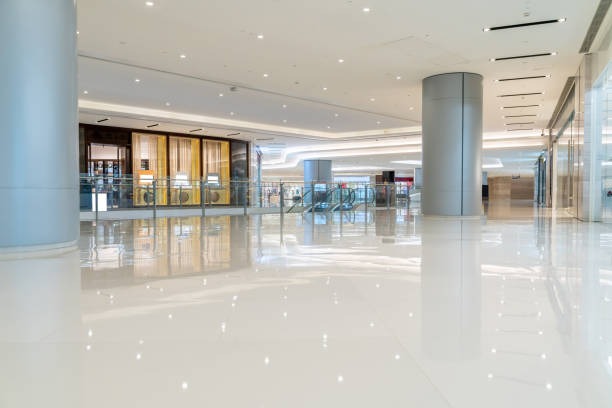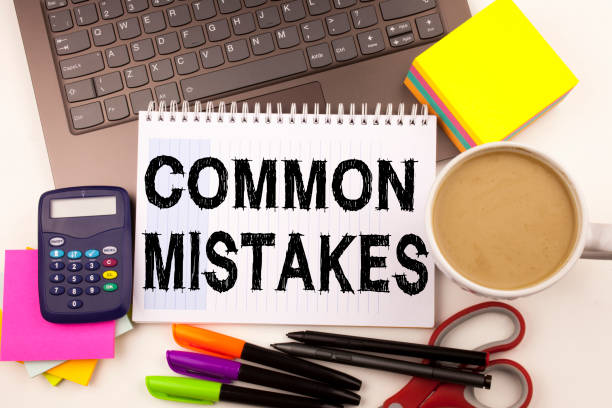When it comes to commercial properties, maintenance isn’t just about fixing what’s broken—it’s about preventing issues before they happen. Neglecting routine upkeep can lead to costly repairs, safety hazards, and even business disruptions. Whether you manage an office building, retail center, or warehouse, proactive maintenance is key to protecting your investment and ensuring smooth day-to-day operations.
Here’s how to stay ahead with smart maintenance strategies for your commercial space.
Contents
- 1 1. Create a Preventative Maintenance Plan
- 2 2. Prioritize HVAC and Climate Control Systems
- 3 3. Don’t Overlook the Roof and Gutters
- 4 4. Keep Electrical Systems Safe and Updated
- 5 5. Maintain Exterior and Common Areas
- 6 6. Regularly Inspect Fire and Safety Systems
- 7 7. Keep a Maintenance Log
- 8 8. Encourage Tenant Communication
- 9 Final Thoughts
1. Create a Preventative Maintenance Plan
A well-organized preventative maintenance plan is the cornerstone of smart building management. This involves regular inspections and servicing of equipment, structural components, and utilities before any issues arise.
Start by listing all critical systems—HVAC, plumbing, roofing, lighting, elevators, fire safety, and electrical systems. Schedule periodic checks for each based on manufacturer recommendations and building use. Digital maintenance software can help you track inspections, schedule service visits, and receive alerts when it’s time for maintenance.
The goal? Identify minor issues before they snowball into expensive emergencies.
2. Prioritize HVAC and Climate Control Systems
Heating, ventilation, and air conditioning (HVAC) systems are vital for comfort and air quality—yet they’re often neglected until they stop working.
Dirty filters, blocked ducts, and worn-out parts reduce efficiency and can raise energy costs significantly. Seasonal tune-ups (spring and fall) are essential to catch problems early and extend the lifespan of your system. Don’t forget to clean coils, check thermostats, and inspect refrigerant levels.
By maintaining your HVAC systems regularly, you improve energy efficiency, reduce repair costs, and keep tenants or employees happy.
3. Don’t Overlook the Roof and Gutters
The roof is your building’s first line of defense against the elements, and water damage is one of the most expensive issues to fix. Schedule semi-annual inspections—ideally in the spring and fall—and check for cracks, pooling water, missing shingles, or signs of wear.
Gutters and downspouts should also be cleaned regularly. Clogged gutters can lead to foundation damage, leaks, and mold growth. A small leak might go unnoticed for months but can cause serious structural issues over time.
Tip: Investing in a professional roof inspection can save thousands in repair or replacement costs later.
4. Keep Electrical Systems Safe and Updated
Electrical systems are a potential safety hazard if not maintained properly. Older wiring, overloaded circuits, or faulty panels can lead to power outages or even fire.
Schedule routine inspections with a licensed electrician to ensure your systems meet current code standards and can handle your building’s energy demands. If you’ve added new equipment or tenants, you may need to upgrade your capacity.
Also, keep an eye on flickering lights, tripping breakers, or unusual buzzing sounds—these are often signs something’s wrong.
5. Maintain Exterior and Common Areas
Curb appeal matters, especially for businesses that rely on foot traffic. Keep sidewalks, signage, landscaping, and parking lots in top condition to maintain a professional appearance and reduce liability risks like slips and falls.
Repaint faded surfaces, fix cracked pavement, and ensure all exterior lighting is functional. Not only does this help your property look good, but it also enhances safety for visitors and staff.
6. Regularly Inspect Fire and Safety Systems
Every commercial building must comply with local fire and safety codes. This includes functioning alarms, extinguishers, exit signs, emergency lighting, and sprinkler systems.
Perform monthly checks of extinguishers and alarm panels, and schedule annual professional inspections as required by law. Ensure all staff or tenants are aware of evacuation plans and that exits remain clear at all times.
Proactive maintenance here is not just smart—it’s legally essential.
7. Keep a Maintenance Log
Documentation is a powerful tool. Keeping a detailed maintenance log helps you stay organized and makes it easier to track recurring issues, schedule service providers, and show proof of upkeep if ever needed for insurance or regulatory purposes.
Logs should include dates, services performed, costs, and notes on any issues discovered. This data can also help forecast future repair needs and budget accordingly.
8. Encourage Tenant Communication
If you lease your commercial space, your tenants are often the first to notice signs of problems—like leaks, odd noises, or HVAC issues. Encourage open communication and make it easy for them to report concerns quickly.
Responding promptly not only helps you fix small issues before they escalate but also builds trust and satisfaction with your tenants.
Final Thoughts
Taking a “wait-until-it-breaks” approach to commercial property maintenance can lead to costly repairs, operational disruptions, and even legal liability. By adopting a proactive, preventative maintenance strategy, you not only protect your investment and extend the life of your building systems—you also create a safer environment for tenants, employees, and visitors.
In places like Utah, where personal injury claims can arise from unsafe building conditions such as slippery floors, faulty lighting, or neglected repairs, the risks of deferred maintenance are even greater. Consulting with Utah personal injury lawyers can help you understand potential liabilities, but the best defense is always prevention.
In the world of commercial property management, it’s smarter—and far more cost-effective—to address issues before they become problems. Fix it before it fails.
Regular maintenance of HVAC systems is crucial to ensure optimal performance and prevent unexpected breakdowns. For businesses in Fredericksburg, timely [hvac repair fredericksburg] can make a significant difference in maintaining a comfortable environment for both employees and customers. By addressing minor issues before they escalate, you can avoid costly repairs and downtime. Scheduling routine inspections and servicing can help identify potential problems early, ensuring your system runs efficiently year-round. Investing in professional maintenance not only extends the lifespan of your equipment but also enhances energy efficiency, ultimately saving on operational costs.
Regular maintenance is crucial for preventing costly repairs and ensuring the longevity of commercial spaces. One key aspect is addressing plumbing, heating, and air conditioning systems, which are vital for maintaining a comfortable and functional environment. Engaging professional services like Trust 1 Services Plumbing, Heating, and Air Conditioning can help identify potential issues before they escalate, ensuring systems operate efficiently. By scheduling routine inspections and addressing minor problems promptly, businesses can avoid unexpected breakdowns and maintain a safe, productive space. This proactive approach not only saves money in the long run but also minimizes disruptions to daily operations, enhancing overall business performance.
Regular maintenance is crucial for ensuring the longevity and efficiency of commercial HVAC systems. By scheduling routine inspections and addressing minor issues before they escalate, businesses can avoid costly repairs and downtime. Implementing a proactive maintenance plan not only enhances system performance but also contributes to energy savings and a comfortable environment for employees and customers. For those looking to optimize their HVAC systems further, exploring advanced solutions and expert advice can be beneficial. Learn more about how to keep your commercial space running smoothly and efficiently.




